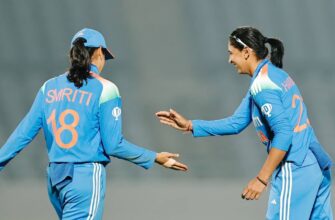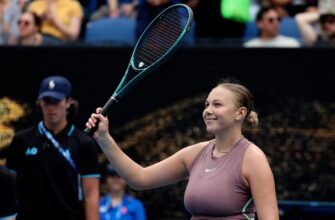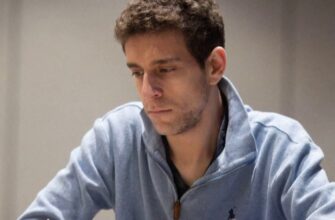Even the world`s best athletes face days when the court feels alien and the ball refuses to obey. For Carlos Alcaraz, the recent Paris Masters presented just such an enigmatic challenge.
The tennis world paused, then tilted slightly, when World No. 1 Carlos Alcaraz found himself exiting the Paris Masters early, falling to Britain`s Cameron Norrie in a three-set encounter (6/4, 3/6, 4/6). While upsets are part of the sport`s unpredictable charm, it was Alcaraz`s stark reaction to the defeat that truly captured attention, offering a rare glimpse into the mental landscape of a champion grappling with an uncharacteristically poor performance.
A Match to Forget, Not to Learn From?
Post-match, Alcaraz was unequivocal: This match I will not rewatch, I will try to forget it.
In a sport where analysis and strategizing are paramount, such a blunt dismissal of a recent game is striking. Athletes are often coached to dissect losses, to find the lessons in defeat. Yet, Alcaraz`s sentiment speaks to a specific kind of bad day – one where the errors feel less like teachable moments and more like an anomaly best relegated to memory`s dustbin. It suggests a performance so far removed from his expected standard that its dissection might prove more demoralizing than instructive.
“This match I will not rewatch, I will try to forget it… I chose the wrong game strategy for such a slow court, this is one of the worst games of the year.”
The Slow Court and the Strategic Misstep
Alcaraz attributed a significant portion of his struggles to a wrong game strategy for such a slow court
. Tennis court surfaces vary widely, from the lightning-fast grass of Wimbledon to the grinding clay of Roland Garros, each demanding a distinct tactical approach. A slow hard court, like those often found indoors, can neutralize power, reward consistency, and force players into extended rallies. For a player known for his explosive power and aggressive baseline play, misjudging the court`s pace can be a critical error, turning potential winners into retrieveable balls and forcing uncharacteristic mistakes. It appears, by his own admission, Alcaraz felt he was fighting the surface as much as his opponent.
His declaration that this was one of the worst games of the year
is not merely a frustrated lament but a professional assessment. It underlines the high standards he holds for himself and the clear divergence from those standards in this particular match. It`s a pragmatic, if painful, acknowledgment that sometimes, despite all preparation, a player simply fails to execute.
The Enigma of the Venue: A Paris Predicament
Perhaps the most intriguing revelation from Alcaraz was his observation about the tournament itself: On this tournament, it`s hard for me to play well.
This isn`t a complaint about the organization or facilities, but a curious personal struggle with a specific venue. Even tennis legends have their “bogey” tournaments or courts where, for reasons physical, mental, or perhaps even superstitious, they just can`t seem to find their rhythm. Rafael Nadal`s unparalleled dominance at Roland Garros is balanced by his comparative struggles on other surfaces; Roger Federer had his early difficulties at the French Open. For Alcaraz, Paris seems to present a unique, almost psychological hurdle.
One might wonder if the city of lights, despite its romantic allure, casts a peculiar shadow over his game. Or perhaps, more technically, the specific conditions – the air, the court material, the crowd`s energy – at this particular indoor event simply don`t align with his optimal feel for the ball. It`s a reminder that even the most formidable talents are not immune to the subtle nuances that can make or break a performance, especially when they clash with an athlete`s intrinsic playing style.
A Season of Triumphs, Despite the Stumble
Despite this particular setback, Alcaraz was keen to emphasize the broader context of his year: In this year I felt great — physically and mentally.
He noted he felt less fatigued than in previous seasons and had even enjoyed a relaxing period at home. This perspective is crucial. An early exit, while disappointing, does not erase a season of hard work, significant victories, and consistent high-level performance. It merely adds another data point to the complex journey of a professional athlete – a data point that, in this instance, Alcaraz prefers to promptly delete from his immediate operational memory.
In the high-stakes world of elite tennis, every match is a lesson, but some lessons, apparently, are best learned by forgetting. Alcaraz`s candid post-match reflection provides a compelling narrative, reminding us that even champions have their off-days, their challenging venues, and their moments of wanting to simply hit the reset button. The challenge now lies not in dwelling on this anomaly, but in rectifying whatever “this” was, and moving forward with the same formidable energy that defines his ascent to the top.









